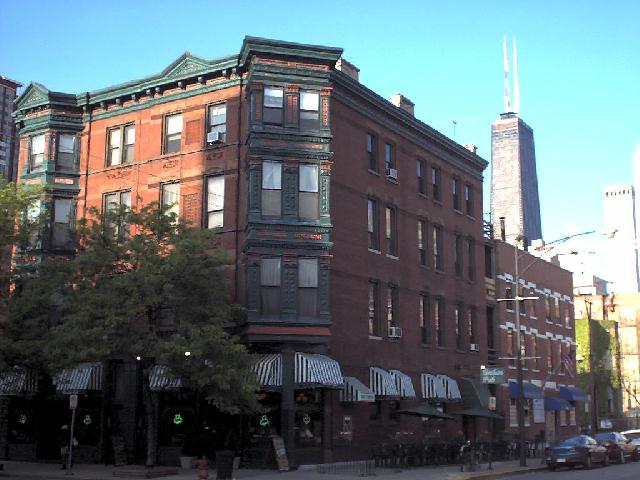|
 \ \
2003 NB |
|
In
August of 1977, a team of undercover reporters from the Chicago
Sun-Times and CBS' 60 Minutes opened a bar here on the corner
of Wells and Superior. They called it, fittingly, The Mirage. Posing
as bartenders, the reporters were offered numerous bribes by city inspectors
for overlooking code violations. 60 Minutes' hidden cameras caught it all.
On January 8, 1978, after four months of operation, the Sun-Times began
a monthlong series exposing the corrupted inspectors.
The undercover investigation led
to widespread reform, and was nominated for a Pulitzer Prize. But the panel
of Pulitzer judges was torn. On the one hand, it was a gutsy, imaginative,
and revealing investigation. On the other hand, the reporters had employed
deception to obtain their findings. The panel passed on the Mirage series.
"The board concluded that truth-telling enterprises should not engage in
such tactics," writes Jack Fuller in News Values. "I still think
they were wrong," says
Len Smith, one of the judges who favored the series. "I've never spoken
to anyone involved in the Mirage project who's lost a second of sleep to
remorse, or who says good riddance to the kind of journalism it embodied,"
wrote the Chicago Reader's Michael Miner on the 25th anniversary
of the investigation. "Inauthentic? On the contrary. They hail it as journalism
verismo." Miner quoted Pam Zekman, one of the reporter-bartenders whose
idea it was to open the Mirage: "I'd do it again in a second." Today the
bar is called Brehon Pub, and the Mirage is mostly a memory. -NB
Further Reading:
-Michael
Miner's column on the Mirage in the Reader
-Review
of The Mirage, the book by Sun-Times reporters Zay Smith
and Pamela Zekman
-Summary
of the Mirage investigation from the Better Government Association
-Biography
of Mirage reporter William Recktenwald
-See also:
"Dig She Must," Chicago Tribune Magazine, June 23, 1985, by Linda
Witt, a profile of Pam Zekman. |
|
|